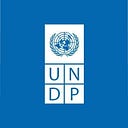Hope springs in the midst of winter in Ukraine
Ever since I arrived at UNDP’s Istanbul Regional Hub as head of communications, I had been wanting to tell more stories about our work.
That opportunity finally arose when my team and I traveled to Ukraine to meet the people who we are supporting there.
I met Ivan in the hauntingly beautiful post-Soviet city of Kramatorsk.
As Ivan guided me through the snowy streets of Donbas, he told me how he left his hometown with his wife for the safety of his one and a half year-old daughter.
As he spoke, I tried to wrap my mind around the fact that his mother and father have stayed behind, trying to get on with their lives amidst conflict.
What would I have done in his place? If I had to choose between my daughter and my parents?
Ivan works as a recovery advisor for UNDP. He has not seen his parents since he left, although he speaks to them every day on the phone. He waits patiently for the day they will be able to see each other again.
In 2014, the region of Donbas in Ukraine came under heavy fire from both sides of the conflict.
To this day, eviscerated buildings, broken bridges and abandoned public spaces serve up a painful reminder that the fighting rages on, just a few dozen miles away.
Ivan’s story is, unfortunately, not unique. The infrastructure and social fabric of Donbas, a region that once served as the Soviet Union’s industrial powerhouse, were devastated in the conflict. UNDP estimates that the violence has dented the country’s GDP by 3 percent.
Internally displaced people have amassed by the thousands in holiday compounds converted into camps, or joined relatives and shared homes in cities like Kramatorsk.
As we went through our week, we realized quickly that this didn’t look like the conflict we had seen on TV.
No one we met seemed to be hungry or sick, though we did hear about people having trouble with accessing medicine.
Many of the displaced had travelled relatively small distances and built new lives with support from local municipalities and the UN.
But their sense of alienation was complete, reinforced by hardening local attitudes.
Ludmila is a displaced woman who lives in a camp without heating. Listen to her story:
Ludmila is, thankfully, not without support. We met Anya and her colleague, two legal experts helping displaced people to get papers that would allow them to sign up for social benefits or work permits. Ludmila now earns her living by selling trinkets across the street from the camp.
Anya’s team is full of such stories: families divided, struggling to place themselves into new lives.
To this day, they have assisted 2,500 displaced people. 2 women vs 2,500 displaced people: it was humbling, to say the least, learning about victories like this one. It’s what makes our work so valuable and rewarding.
In Sloviansk, we met with Dr. Olexander, a surgeon who moved his operating room into the basement of his clinic as the building came under heavy shelling.
In three days, Dr. Olexander had to perform 38 operations on civilians and soldiers from both sides of the frontline.
“We worked around the clock and even helped give birth to a baby boy,” he said. The clinic has been fully renovated and services 42,000 people.
UNDP is working with local authorities, Japan and others to rebuild infrastructure, rehabilitate social services, train people affected by the conflict to find jobs, and bring IDPs and host communities closer together.
What stuck with me as I took the train back to Kiev, zigzagging on the platform among throngs of soldiers, is the sense that from one day to the next, the lives of people just like me could collapse so suddenly in circumstances they didn’t choose.
It’s the solidarity I witnessed in Donbas that makes the people we met so extraordinary.
Editor’s Note: If you liked what you read, please remember to recommend this article by clicking the heart below. Thanks :)
